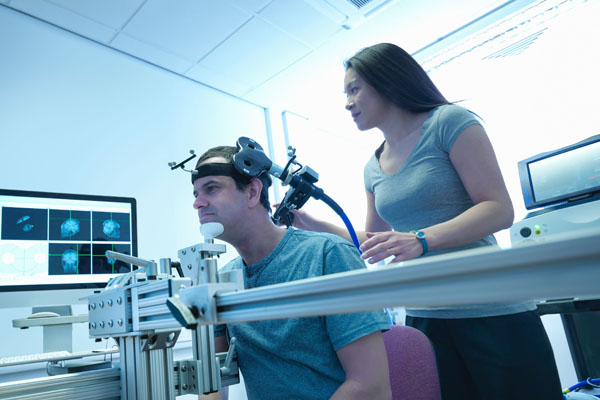 TMS or transcranial magnetic stimulation is an alternative depression treatment. It is for patients with treatment-resistant depression. These individuals are not responsive to antidepressants anymore. It can be a drastic change for some patients, but knowing more about it can make the transition better. If you want to understand more about deep transcranial magnetic stimulation, here are the facts.
TMS or transcranial magnetic stimulation is an alternative depression treatment. It is for patients with treatment-resistant depression. These individuals are not responsive to antidepressants anymore. It can be a drastic change for some patients, but knowing more about it can make the transition better. If you want to understand more about deep transcranial magnetic stimulation, here are the facts.
What transcranial magnetic stimulation is
This is a non-invasive treatment. It uses several magnetic fields to arouse the brain’s nerve cells. A helmet-like device delivers repetitive magnetic pulses. That is why many people know it as deep TMS or repetitive TMS.
It helps improve severe depression symptoms. This treatment can help patients who are not improving with standard depression treatments. The process can also treat other mental issues. Individuals with schizophrenia, post-traumatic stress disorder, and anxiety can improve with TMS.
How transcranial magnetic stimulation works
The psychiatrist will place an electromagnetic coil against the person’s scalp near the forehead. The coils send electromagnetic energy. The energy reaches the nerve cells through magnetic pulses. It targets the brain areas responsible for depression. The stimulation affects how the brain works. It then improves the mood and eases the symptoms.
The first treatment
The psychiatrist will identify the most ideal spot to place the magnets on the patient’s head. The doctor will also determine the most ideal dose of magnetic energy. This first TMS appointment often lasts for about an hour. The patient will go to the treatment room and sit in a comfortable reclining chair. The psychiatrist will give the patient earplugs for the procedure.
Placing the electromagnetic coils on the patient’s head will be next. Switching it on and off repeatedly will produce pulses. This produces a clicking sound for a few seconds. Then, a pause will follow. The person will feel a tapping sensation on the forehead. Mapping is another name for this procedure.
The psychiatrist will determine the right intensity of magnetic energy. This is possible by increasing the magnetic energy until the hands or fingers twitch. This is the patient’s motor threshold. Psychiatrists use this to determine the right magnetic dose for the patient. Side effects and symptoms often determine the amount of stimulation.
Preparing for transcranial magnetic stimulation
The psychiatrist can help prepare the patient for TMS. There will be a complete physical exam. The lab results can help the doctor see if there are physical reasons leading to depression. Then, a psychiatric evaluation can also tell the doctor how severe the depression is. The patient must tell the psychiatrist about the following:
- Medical devices inside the body
- Current pregnancy
- Desire to be pregnant
- Medications
- Mental issues
- Previous TMS treatment
- Medical conditions
- Severe headaches
- Brain damage from injury or illness
- History of seizures
Transcranial magnetic stimulation can improve depression symptoms
Dealing with depression can be difficult. Your psychiatrist can recommend TMS if you want to improve your symptoms. Transcranial magnetic stimulation is effective and non-invasive. It is also versatile enough to treat other disorders like schizophrenia. Your psychiatrist can check if you qualify for TMS.
Request an appointment or call Hope TMS and Neuropsychiatric Center at 646-578-8152 for an appointment in our New York office.
Recent Posts
Transcranial magnetic stimulation (TMS) is a cutting-edge treatment that offers hope for people dealing with depression and anxiety, especially those who have not found relief with medication or therapy. TMS is a non-invasive procedure that uses magnetic fields to stimulate specific areas of the brain involved in mood regulation. This innovative approach is helping many…
Transcranial magnetic stimulation (TMS) has gained recognition in recent years as an effective treatment option for patients with depression that does not respond to medication. TMS was certified by the Federal Drug Administration (FDA) in 2008, and it is now widely accessible across the United States.According to the National Institute of Mental Health, over 17…
Transcranial magnetic stimulation therapy, or TMS therapy, stimulates the brain to manage symptoms of depression and other mental health issues. Psychiatrists recommend the treatment to patients who fail to respond to more conventional therapies. Read on to learn how TMS works and whether the treatment is a good fit.Psychiatry involves crafting personalized treatment plans that…


